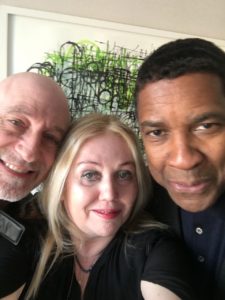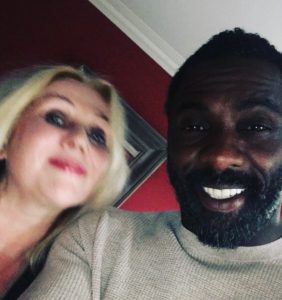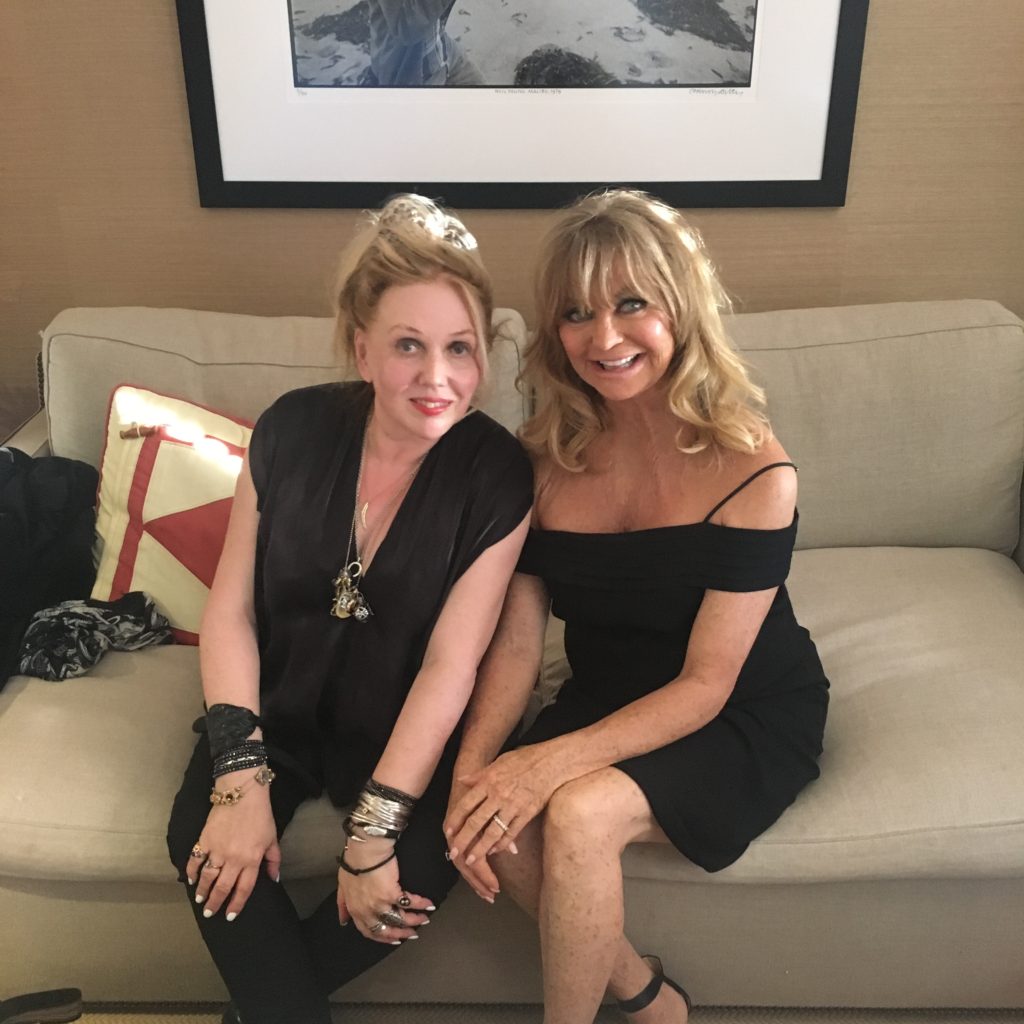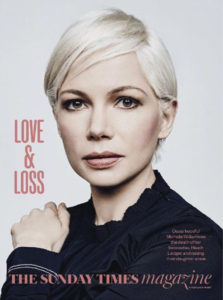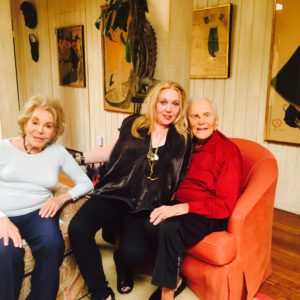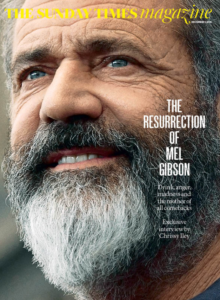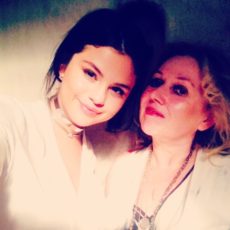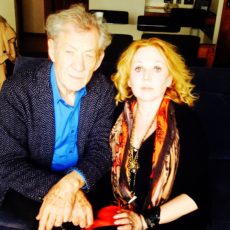The first 20 minutes of Flight are possibly the most adrenalin spiked 20 minutes in film. We see Denzel Washington wake up in his crumpled hotel room. We see the gorgeous naked woman he’s just spent the night with. He gets up. We see his body a little too soft, a little too juicy. His hair a little too long, a little too springy. Then we see him take a line of cocaine.
This little scene is not shocking in itself. It is shocking because it is Denzel Washington. We don’t see him do sex and drugs and rock and roll. We see him as political martyr Malcolm X, freedom fighter Steve Biko, the Zen-like boxer Ruben Carter in Hurricane. We see him saving the train in Pelham 123 and the beyond ruthless CIA agent turned traitor in Safe House.
He’s played the good, the bad, the conflicted, but it’s a long time since we’ve seen him get out of bed naked. Then comes a further jolt. We see him put on his pilot’s uniform, and that his girlfriend is the flight attendant.
We see them board the plane. We see weather, turbulence. We see him down the vodka just before the plane’s hydraulic system fails.
We see him turn the plane upside down and fly it. You watch it heart in throat. It’s Denzel Washington, he’s the hero, he’s going to survive. Right?
Then it becomes clear that’s not the story. It’s not about him being a hero, it’s about an act of God that wrecked the plane and changed his life forever. It’s about love, truth, redemption. Stories that Denzel knows how to tell best and weave them into your heart and soul.
When we meet in a Beverly Hills hotel room he’s looking bright eyed, sparkling eyed even. His skin is fresh and he’s lean and strong in a navy sweater and dark jeans. His smile lights up the room as it does the screen.
He is sitting in an oversized overstuffed armchair with a high back. ‘I feel like I’m sitting on a throne here.’ He is king after all. ‘No I’m not,’ he retorts quickly but purposefully. ‘I just like the chair. It’s a kind of Richard III thing.’
These days he’s all about Shakespeare and the theatre. In 2010 he did the play Fences on Broadway with Viola Davis. He started off as a stage actor in New York. That going back to his roots revitalised him.
‘It did. You know as we mature – well hopefully mature – as we get older, hopefully we get wiser and you start to realise how many shots do I have left? And the experience of working with Viola on Broadway was such a thrill. Watching her I realised I’m fighting for my life out there with this brilliant actress. The whole process is where I am in my life right now. It reawakened me. I felt alive again and I said I want to apply that same work ethic to every job in terms of preparation, investigation, everything. I’d said to myself I want to work hard and I want to do things the right way and I want to have the feeling that this is not just another gig.’
For Washington, now 57, there have been many gigs that seem from the outside not just another gig. His performances are consistently acclaimed. He is box office nectar. He has had multiple Oscar nominations and won twice, first Best Supporting Actor in the Civil War drama Glory in 1989 and then in 2001 for Training Day, where he played narcotics detective Alonso Harris who breaks the law he is supposed to enforce.
He is drawn to ambiguous characters, bad guys who are vulnerable and vice versa. I don’t think I’ve ever seen him turn in a bad performance or a bad review. There has never been a bad period or a lull. He has kept on form. Recent movies Unstoppable and Safe House, have been box office thrillers.
The movies would have been good on their own. It was Washington who made them viable. You never see him acting. He is always effortless, considered, magnetic. Or that’s how he comes over.
On the inside perhaps he felt complacent. ‘No matter how big a movie is, I never want it to be just another gig. I don’t want that. Don’t want to know.’
He savours words and he looks right at you. He misses no detail. Not even a smell goes unchecked. He notices that I’m wearing the same perfume, Carnal Flower, as the last time we met a couple of years ago.
Perhaps his recent questioning of how many shots was highlighted by the shock suicide in August of his friend Tony Scott, director of Crimson Tide, Man On Fire, Déjà Vu, Pelham 123 and Unstoppable.
‘I made five movies with him. I talked to him about a week before he died about our sixth movie. He wanted to do a film where I played a submarine captain driving a submarine filled with narcotics. We were talking about it.’
Were there any clues as to his state of mind? ‘No.’ He shakes his head emphatically. His eyes flash with a kind of urgency to recall everything exactly.
‘First of all I’ve never been in a situation like this where you start to backtrack. You think what they said to you. You think what you said. And then a week later they kill themselves. You might think it was something that I did. You know what I mean, you don’t know, you don’t see it coming. I don’t know what was going on in his life.’
He was depressed? ‘Something. Obviously.’
Shortly after the news there were some reports that he had cancer that was terminal and these were quickly denied. ‘I don’t know. I don’t know. I haven’t talked to anyone who said that he was ill.’
Sharp intake of breath. ‘The Scott brothers,’ he says, almost like it’s a prayer. It is certainly said with reverence and bewilderment.
He says of the Tony Scott submarine project. ‘I wouldn’t touch it now. Not without him.’ Next up he has a film 2 Guns with Mark Wahlberg. ‘We were just acting stupid basically. It’s the first time I’ve ever acted stupid. We’ll see what happens.’
People don’t expect him to act stupid. They expect gravitas. ‘Exactly. Choosing parts after a great play like Fences and then to do such a dark guy like in Safe House, you just want to do something silly.’ Washington has never wanted to be pinned down as one thing. He dislikes boxes and labels.
He was born in 1954 in Mount Vernon, New York, a mostly middle class suburb. His father was a preacher who worked for the water company in the day and a security guard at night and preached in between. His mother, who was by all accounts feisty and formidable, ran beauty salons. His parents divorced when he was 14, which coincided, with his own teenage middle child (of three) rebellious phase. For a while he hung out with a bad crowd.
His mother sent him away to boarding school where he rebelled further but turned himself around in order to go to college to study medicine. Then he changed to political science. Then law and finally he found that he was good at acting and that’s what he stuck with.
Not that he wanted to recommend the profession to his daughter who is studying at NYU. She did a small part in her first film (with Precious director Lee Daniels) in the summer. He looks protective when he talks about her.
Is it exciting or worrying for him to see her going into the acting profession? ‘It’s interesting. In her senior year at high school she was working on her audition and LaTanya Richardson, who is Sam Jackson’s wife and a brilliant actress in her own right, was working with her, and I said, “Alright Olivia, I want to see your two pieces” and she went on the floor and went all dramatic and she said, “Oh dad.” And I said, “Come on now. Nobody’s going to be tougher than me. I’m going to tell you the truth because I’d rather you’d be a little hurt if you don’t have what it takes than have a lifetime of pain.”
‘She did the two pieces and right away I said do them again. She did them again and I said, “OK. Here’s the bad news. This is one of the toughest profession’s you’re ever going to try to do. The bad news is you are very good. You are very good and you have what it takes. I can see that already.” I would never have said that if I hadn’t meant it. I put on my director’s hat and watch a young actor audition. And she was good.’ He says it almost wishing it had been easier.
He directed Antwone Fisher (2002) and The Great Debaters (2007) and is preparing to direct again. ‘I don’t know exactly what it is yet. It’s not set and I don’t want to jinx it.’
As an actor he intellectualises his role way ahead of time. Flight director Robert Zemeckis says, ‘He arrived very prepared.’
For Safe House he wanted to experience the torture of water boarding in real life. “I wanted to see what it would be like. It’s strange. You can’t breathe in, because the water comes in, and it’s filling up your mouth,” said Washington. “And that was just one time for a short time. Imagine having that done for 20, 30 seconds? You will give up the answers! You may not necessarily tell the truth, but you will tell [your captors] whatever they want to hear.”
So how did he prepare to be an alcoholic pilot? I gesture to the hotel suite minibar. ‘Did he check in and drink the minibar? ‘No, nothing like that. In fact I did absolutely not drink the entire picture. Normally I might have a glass of wine after work or something like that. But on this one I was afraid I might get too into it, and I just wanted to be clear. I want to give 100 per cent of myself and I want to be focused.’
How foolish of me to think that to get into the part of a man who loves to drink would involve some method drinking. ‘Nothing would have been worse than drinking on the set. And then you might think you were good and you’d be awful.’
Instead he went into the flight simulator. Listened to pilots talking. Didn’t ask them questions about drinking but typed “worse drunks of all time’ into YouTube and looked at the guys telling themselves they were absolutely fine as they fell over.
He gained weight for the part so the puffiness would look like it was bloating from alcohol. ‘I ate a lot. I ate what I wanted and I ate late at night. I would come home from work. I didn’t over eat. But if I wanted a hamburger and fries and shake and a piece of apple pie with ice cream on it I had it.’
And he’d normally eat like that once a week? ‘Less. But I knew this was a man who drank and did drugs. He’s not going to be going to the gym and he’s going to be not sleeping enough.
‘In the opening scene, in the bed I wanted my gut to be hanging out. I wanted to get up and my behind be sticking out when I was sniffing coke, smoking cigarettes and drinking. You’ve got to go there because that’s who he is. There’s no cute version.’
We see Washington playing a man in conflict impeccably. He is both a hero and a man on self-destruct. We haven’t seen Washington quite like that before. His eyes light up. ‘Great. I hope people say we haven’t seen Denzel like that.’ Once again delighted that neither he nor his character has been pinned down.
‘I don’t categorise. People want to put you in things. He is a complicated man. It’s a complicated movie. You can’t just stand on one side or the other.’
Talking to Washington happens on many levels too. He is chatty, he is jokey, he is relaxed, but he too is complicated. He doesn’t go to Hollywood premieres. You never see him in the gossip columns. He’s been married to his wife Pauletta for 29 years and 17 years ago they renewed their vows in front of Archbishop Tutu in South Africa. He doesn’t talk much about his wife although he never specifically says he’s not going to talk about her. In all he has four children, John David, Katia, and twins Olivia and Malcolm.
Flight is also a love story, and again we haven’t seen Washington in one of those for a while. The scenes between his character Whip Whitaker and Kelly Reilly’s character Nicole are intensely tender, intensely troubled. It’s another level to the movie that makes it not just another gig. I’ve rarely seen him so vulnerable.
‘Really?’ His eyes open wide. ‘I didn’t think about it as vulnerable. I’m playing the part, so I’m not thinking oh, I’m going to be vulnerable.’ Washington often refers to the fact that he wasn’t thinking, that he’s done something instinctively. Yet on another level he is thinking all the time, always on.
‘I do have one regret. I should have slobbered more and been more pathetic in the scene where he curses her. Maybe I did do it that way and Bob didn’t use it.’
He can’t remember how he played the part because he was so lost in it. You wonder how far apart these characters are. Washington so sparkly, so handsome, so professional. And a man unravelling in his own self-destruction and alcoholism.
Has he ever had an addictive personality? ‘I’m still here! I think we all have some point in our lives where we’ve gone too far and you have to come back. Any time you’ve got into a car and you’ve had too much to drink and you put other people’s lives at risk. I’m not going to tell you I’ve not been guilty of that in my life, especially in my youth. Obviously nothing like this guy, I wouldn’t want to be that guy.’
Flight questions how alcoholics survive by telling lies. There is a moment where if his character tells one more lie it would save him and doom him in equal parts. If he lies he gets away with it.
Has Washington ever had a situation like that where he had to decide if he should lie? ‘Nothing to this level. More like if I lied to my mum I might not get told off. I do remember when I was a little kid I stayed out way too late and it’s probably why I started acting. I knew I was going to get a whipping when I got home.
‘I stopped outside the door of the house and I could hear my mother and father in the kitchen so I actually ripped my shirt, put spit under my eyes, messed up my hair. I was already messed up because I’d been out most of the night. But I came in…’
He puts on a fake sobbing tone. ‘And I went through a whole business (of how he’d been attacked) and my mother said “You see, that’s what you get for staying out late. Now go in to the bathroom and clean yourself up and come in and sit down and eat.” And I remember looking into the mirror and thinking, “Ha, maybe I should try this again.” Maybe while I was in there my mum was thinking “That little knuckle head thinking he was fooling us.” I don’t know, but yes, I got away with it.
And fortunately for us, Washington is still getting away with it.
Everything Denzel Washington says is said with incredible force, warmth, and he savours every word. He is in his suite at the Four Seasons, Beverly Hills. I arrive as room service leaves. He perches over his lunch of a giant juicy steak. He’s just cut a chunk. It’s hovering on the end of his fork just about to go into his mouth and he decides to inhale me instead.
“What are you smelling of? You smell like a lei, Hawaiian flowers, the one beginning with a g.” He opens his mouth and his nostrils at the same time. Shoves the piece of steak in and chews heartily. “Mm, it’s the g flower, the gardenia one. Isn’t it?,” he says excitedly.
“It’s called Carnal Flowers,” I tell him.
“Carnal flowers,” he says, salivating and cutting off another piece of steak. He’s very excited. And his excitement is somehow infectious. He likes to play around. He likes to joke, even though of course he takes his craft ultra seriously with an absolute eye for the minutest detail. And I wonder if the overt smelling was a reference to the movie Deja Vu where smelling is an intricate part. If you smell something it’s a trigger, it can take you back. If you smell something you feel it, you’re in the real world, you’ve not slipped down a wormhole as he does in the movie.
Deja Vu is a murder mystery, an understated romance, the ultimate surveillance that involves time travel. “I don’t know where I got that smelling thing from. I think I just did it and Tony Scott said yeh, do that some more.”
In the movie it was as if he needed to smell to feel he was real. “It’s about using all the senses, not relying on what you see, what you hear, what you smell and ultimately what you feel”
You get the impression that Denzel Washington has the hugest capacity to feel. Everything he does is filled with a raw and deep emotion, even just chewing his steak. The ultimate guy’s guy that is also super sensitive. Tall, sharp, funny. The overriding sense you get from him is that he is super protective – of himself, if you go in too far too deep too soon he doesn’t like that. Of his family, particularly his daughters. Of his co-star Paula Patton in Deja Vu. His whole protectiveness elevates the story from one of a simple thriller to something that is personal, intimate, something that really matters. He is even protective of me. The last time we met I was almost passing out with pain (stomach cramps). He was more like a doctor than an actor in that interview. You tell him these things and he doesn’t like compliments. I tell him that he came over as such a force of shiny protection. “Well I did not think I was shiny and protective. Thankyou, but that’s not how I see myself. Maybe I could have played that part in a different way, like a dirty twisted old man. Maybe that’s a different movie. Maybe it was just that Tony made a really good choice in Paula because she’s a real sweet person and that comes across. You want to protect her. Me, protective person? Hm. Yeh, yeh, yeh. All this as I eat my steak. Well you know it’s coming up to Thanksgiving. Get turkey for the next five days. Got to get my steak in now.”
He likes to present a thin facade of machismo. Wrap himself up in it, but he knows it’s easily unravelled. Even when he played the brutal narcotics detective Alonzo Harris in Training Day there was something wounded about him. That’s what makes Denzel a great actor. You don’t feel for him, you feel with him. As Rubin ‘Hurricane’ Carter the boxer wrongly accused of murder in The Hurricane his sweet stoicism made you cry and got him an Oscar nod. This kind of emoting the audience first became apparent when he inhabited the role of Steve Biko in Richard Attenborough’s Cry Freedom in 1987. A whole slew of films Man On Fire, Manchurian Candidate, Inside Man have all demonstrated Washington’s capacity for toughness with an undercurrent of vulnerability. He is complex and instantly accessible, was once called “so handsome he should be illegal” and he is of course deliciously handsome. And here he is right in front of me smelling me, if somewhat ostentatiously, just because he knows it will amuse me. He knows how to get right to you. He knows how to carry you along.
In Deja Vu you are left contemplating the universe and every relationship you’ve ever had. Deja Vu is in itself a bonding phenomenon. Everyone’s had that flash that you meet someone new and feel you’ve known them all your life, feel inexplicably in love with a stranger. In the movie flipping back in time is possible, and that’s how deja vu is defined, that you have been there before. It raises the question, if you could do it all again could you, would you. In real life deja vu is a trick of the mind, is it a dream. In the movie it involves an extreme form of surveillance where you look at something and as you’re looking at it you can travel in time. It involves the highly complex notion of the parallel universe and slipping down wormholes into alternative dimensions where the same thing is going on but just a little earlier. If you have the power to slip into that dimension do you have the power to change it.
“Be careful what you ask for,” Washington wags his finger.
The movie’s convolutedness and complex science are made tangible by Washington’s very fleshy, sensuous performance. He’s an ATF (Tobacco and Firearms Agent), he’s an everyman. You figure it out with him. He’s good at taking you on journeys.
I tell him, ‘You must have had deja vu moments with a string of interviewers asking you what is your favourite deja vu moment?’ “Aha, ha, ha. I usually turn it on its ear and ask them the question back.”
Typical Washington, he’s always more interested in asking the questions. He has an insatiable curiosity as well as a liking to duck and dive.
“Scientists talk about how we use only ten per cent of our brain. What is the other 90 per cent doing? That’s where the intuition, the feelings, the deja vus, all that stuff. It goes there. I think as we advance our interactive skills, our information skills, our brain is getting weaker and weaker because it doesn’t imagine. Like your mother would tell you a story and you would imagine all the characters. If you listen to the radio or read a book you make the movie in your head. Now it’s all given to you on a plate. You have a television with 500 channels. The muscles in the brain are getting weaker.
“Maybe deja vu is some sort of intuition. You feel you know this person well. It’s as if you’ve met them before but you’ve just intuited who they are.”
I tell him I’ve always thought his powers of intuition have been strong. “What do you mean?” He’s almost shrieking, offended. I feel you intuit a part, a person, you’re always looking for different angles, always asking questions, curious, it’s like you’re switched on the whole time.
“Ah,” he says. “I think I’ve worked on developing that muscle. One spiritual journey develops that muscle. I’ve gone through the eastern philosophies, Christianity, Buddhism, Swamis, and back to Christianity and Islam. Just searching. I mean Siddharta by Herman Hesse is my favourite book because he was walking the earth, praying, searching. I kind of had that vibe and curiosity. It leads you to your own philosophy, like working on what that 90 per cent of your brain is doing.
“Is it OK to be a searcher and a carnivore?” he says. Maybe he isn’t sure of how the extremely spiritual side of him fits with the grounded, the basic. And maybe that’s the key to him. It’s a key that he doesn’t want me to find. He hates being analysed. “We don’t understand oxygen but we keep breathing.
“I think if this movie is about anything it’s about if you could change anything would you. Doing this movie shows me that I would not want to do that because of the domino effect. If you changed one thing how would you change another.”
It’s not that Denzel Washington had a charmed life that makes him think he would not want to change anything, but there’s a determination about him and a stoicism that makes him work hard for what he wants and a spiritual side that makes him accept what he doesn’t get. He’s not your typical movie star. He doesn’t love glamour or bling. I’ve read that his wife had to persuade him to upgrade his car into something a little fancy at a time when he could have gone plushy luxury. Recently a friend of mine was in her local video shop. Browsing among the shelves she found a random man and asked him to recommend something. They were out of his first recommendation The Da Vinci Code so he went with Inside Man and when she got it home she realised that the man recommending it was the star of the movie. So there’s a Hollywood rarity, he goes to the video shop himself.
He was born in 1954 in Mount Vernon, New York, a mostly middle class mostly white suburb. His father was a preacher who worked for the water company in the day and as a security guard at night and preached in between. His mother, a formidable figure, ran beauty salons. His parents divorced when he was 14, which coincided with his own teenage middle child (of three) rebellious phase. He was a keyboardist in a band with three friends who all ended up serving time. It was one of those fork in the road moments. His mother, upon the recommendation of a school’s career officer, who felt he was intelligent and had a chance of a career, sent him away to boarding school where he found a group of bad boys who could afford to buy drugs. He’d never touched a drug or drink before that. Despite the potential bad influence he did well, went to college to study medicine, then changed to political science, then he thought he might be a lawyer, and then he found he could act and potentially be all of the above, or at least have the experience of feeling what it would be like to be them.
I wonder if he is most like his devout preacher father who hardly ever watched a movie, or his tough love mother. “Similar? You might have to ask my mother that. He’s gone,” he says in a whisper. His father died 15 years ago. “I wouldn’t dare say.” Back in Denzel boom he says, “Closer to, that’s different to similar to, isn’t it. I would say that the mother is the one that is there so you are always going to be closer to your mother. My own children are probably closer to my wife. They have spent more time with her. She knows them better. That’s the way it is in most homes.”
His oldest boy John David is 22 and a football player with the St. Louis Rams. Katia has just turned 19 and Malcolm and Olivia are 15-year old twins. “Maybe it’s chauvinistic, sexist, but I don’t worry about my son the football player. He’s out of the house, he can take care of himself. But with my oldest daughter, she’s away at college but she came home for the holidays. I couldn’t sleep, it was two in the morning, I was going down the corridor. Was her car there, was she in her room? If she’s at college I know she’s staying out late but I don’t think about it. When she came home it seemed to pick up right where she left off. But yeh, I would say that my parents were protective and controlling when they needed to be. And of course I’m a protective parent.”
He’s also a protective partner. It’s been said before that he doesn’t easily do love scenes and never would want to show them to the public before his wife of 25 years Pauletta could see even a kiss first. Twelve years ago they renewed their vows in front of Archbishop Tutu and then a gathering at Nelson Mandela’s house. He says that stories about his unwillingness to take his shirt off have certainly been exaggerated. In Deja Vu though the romance is all the more powerful for being underplayed.
“I think it’s sexier that way. We could have been jumping on the mattress every ten minutes, but that wouldn’t have been right. It wasn’t even scripted that I kissed her, I just did it and that was enough. I mean, my character has just saved her life a few hours ago, I think it’s much more romantic and more interesting to be about what you don’t do. I love a big part of this film was a love story in reverse. My character meets her when she’s dead and he tries to treat her like just a piece of evidence, the body, but as things unfold he gets the chance to watch her live and be with her watching her for days.”
Do you think watching somebody is about protecting or controlling? “Oh, I think there’s a thin line, but in the film he’s not controlling because he has no idea he can actually do anything about it.”
What makes his character and Denzel himself have an extra edge of charisma is that there is always the potential for darkness as well as sweetness. This is the third time he has worked with director Tony Scott and when he cast him as the former FBI agent who liked to get maudlin at the bottom of a bottle in Man On Fire he said that he thought Denzel had a dark and obsessive side.
“Dark, obsessive, sweet, protective? I don’t work with any of that. I’m neither. I’m me. I do a job, I interpret a role. I think we all are those things at the same time and I don’t think, ooh, let me access the sweet now. It’s not like I’ve got 12 different things I can do and I’ve got to work off one. There’s several of them going on now in this interview. I am sensitive, intuitive, there’s a dark obsessive side, and a carnivore. That’s trying to pin me down. Mm, carnal flowers, that’s who I am. No, if I were a perfume it wouldn’t have a title, I wouldn’t name it anything.”
What would it smell of? What note would it have? “Minor chords,” he nods. “Minor chords.” he still plays music, “but not enough. I’ve been listening to this girl Ayo and she has a song that she sings about her father and how she did not understand the sacrifices he made when she was growing up. With the song she apologises for the hard times she gave him. It doesn’t specifically make me think of my father, although he did make sacrifices, it makes me think more of my daughters. But I just liked the song because I like bluesy darker songs. First you think it’s about one thing and then it becomes about something else.”
The movie Deja Vu was shot in New Orleans, the first movie to be shot there since Hurricane Katrina. “I was here in LA for the Northridge earthquake. I know the feeling of destruction, of a place being just empty and a whole community traumatised. Where is everybody? Everybody’s gone. Empty houses and cars stuck up trees. Tony had initially felt the movie would work there so obviously I said let’s get back there. We spent tens of millions of dollars, hired local people, stayed in hotels, so it was good to be a small part of giving something back.”
You imagine him being driven by wanting to be good yet he has never been active in politics, never wanted to define himself as any kind of role model. Have you ever considered getting politically involved. “No,” he says insistently. “I vote, I pay taxes. One has to realise one’s limitations. I don’t just want to do things because I’m famous.” He is however committed to an involvement with the Boys and Girls Clubs of America. “I do support other things but I stick with that one because I’m like, hey, let me get one thing right. We’ve gone from 2.2 million to 5.7 million children that we take care of around the world, from 2,000 clubs to 45,000 clubs.”
He says that a boys club helped shape and guide him in his childhood. He may say he’s not political but if he can do something he does. Next up is the movie American Gangster directed by Ridley Scott. It’s set in Vietnam and it’s about a drug lord smuggling heroin into Harlem in the 1970s by hiding stash in the coffins of American soldiers returning from the conflict. He’s still suffering a bit of jet lag from filming in Thailand but says he doesn’t want to talk about that movie. He doesn’t want to talk about his next directing project. “I just want to get it done before I chit chat too much about it. I want to make sure it happens before I talk about it.” His first directing project was Antwone Fisher which dealt with a boy’s physical abuse. It was well received but not an enormous box office success. “I thought be careful what you ask for. Before it happened I was terrified, couldn’t sleep, had to see a chiropractor. I thought it was the scariest thing I’d ever done. Once it started I really enjoyed it. It’s all about jumping into the water and having faith.”
Are you scared about anything else outside work? “Did I say I was scared of anything?” OK, sorry, what excites you then? “My children. That’s much more exciting than going to work. Watching them grow, finding out what they’re all doing. But you know Paula Patton reminded me of what being scared and excited in this business really meant. I’ve made a few films, been in the business a while, some thirty something red carpets, when you meet someone for whom it’s all new you realise how fortunate you are to be in this position where you are actually jaded. It was also a good reminder that fear is good. A healthy scare is good.”
He may not like to be analysed. He loves to analyse other people. He wonders what it would be like if he had to play me in a movie. I ask him would he do that? “With love and tenderness. Get in contact with my feminine side. I wouldn’t even worry about finding out about you the journalist. I would like to find out about the you inside, the you that you left behind. I’d want to get the smell right. I don’t think guys care about smell. We have two smells, good and mm, I don’t know. You were asking me what were you feeling what were you thinking. A man does not want to think that much.” This man may say he doesn’t think very much, but he thinks very intensely all the time.
Everything Denzel Washington says is said with incredible force, warmth, and he savours every word. He is in his suite at the Four Seasons, Beverly Hills. I arrive as room service leaves. He perches over his lunch of a giant juicy steak. He’s just cut a chunk. It’s hovering on the end of his fork just about to go into his mouth and he decides to inhale me instead.
“What are you smelling of? You smell like a lei, Hawaiian flowers, the one beginning with a g.” He opens his mouth and his nostrils at the same time. Shoves the piece of steak in and chews heartily. “Mm, it’s the g flower, the gardenia one. Isn’t it?,” he says excitedly.
“It’s called Carnal Flowers,” I tell him.
“Carnal flowers,” he says, salivating and cutting off another piece of steak. He’s very excited. And his excitement is somehow infectious. He likes to play around. He likes to joke, even though of course he takes his craft ultra seriously with an absolute eye for the minutest detail. And I wonder if the overt smelling was a reference to the movie Deja Vu where smelling is an intricate part. If you smell something it’s a trigger, it can take you back. If you smell something you feel it, you’re in the real world, you’ve not slipped down a wormhole as he does in the movie.
Deja Vu is a murder mystery, an understated romance, the ultimate surveillance that involves time travel. “I don’t know where I got that smelling thing from. I think I just did it and Tony Scott said yeh, do that some more.”
In the movie it was as if he needed to smell to feel he was real. “It’s about using all the senses, not relying on what you see, what you hear, what you smell and ultimately what you feel.
You get the impression that Denzel Washington has the hugest capacity to feel. Everything he does is filled with a raw and deep emotion, even just chewing his steak. The ultimate guy’s guy that is also super sensitive. Tall, sharp, funny. The overriding sense you get from him is that he is super protective – of himself, if you go in too far too deep too soon he doesn’t like that. Of his family, particularly his daughters. Of his co-star Paula Patton in Deja Vu. His whole protectiveness elevates the story from one of a simple thriller to something that is personal, intimate, something that really matters. He is even protective of me. The last time we met I was almost passing out with pain (stomach cramps). He was more like a doctor than an actor in that interview. You tell him these things and he doesn’t like compliments. I tell him that he came over as such a force of shiny protection. “Well I did not think I was shiny and protective. Thankyou, but that’s not how I see myself. Maybe I could have played that part in a different way, like a dirty twisted old man. Maybe that’s a different movie. Maybe it was just that Tony made a really good choice in Paula because she’s a real sweet person and that comes across. You want to protect her. Me, protective person? Hm. Yeh, yeh, yeh. All this as I eat my steak. Well you know it’s coming up to Thanksgiving. Get turkey for the next five days. Got to get my steak in now.”
He likes to present a thin facade of machismo. Wrap himself up in it, but he knows it’s easily unravelled. Even when he played the brutal narcotics detective Alonzo Harris in Training Day there was something wounded about him. That’s what makes Denzel a great actor. You don’t feel for him, you feel with him. As Rubin ‘Hurricane’ Carter the boxer wrongly accused of murder in The Hurricane his sweet stoicism made you cry and got him an Oscar nod. This kind of emoting the audience first became apparent when he inhabited the role of Steve Biko in Richard Attenborough’s Cry Freedom in 1987. A whole slew of films Man On Fire, Manchurian Candidate, Inside Man have all demonstrated Washington’s capacity for toughness with an undercurrent of vulnerability. He is complex and instantly accessible, was once called “so handsome he should be illegal” and he is of course deliciously handsome. And here he is right in front of me smelling me, if somewhat ostentatiously, just because he knows it will amuse me. He knows how to get right to you. He knows how to carry you along.
In Deja Vu you are left contemplating the universe and every relationship you’ve ever had. Deja Vu is in itself a bonding phenomenon. Everyone’s had that flash that you meet someone new and feel you’ve known them all your life, feel inexplicably in love with a stranger. In the movie flipping back in time is possible, and that’s how deja vu is defined, that you have been there before. It raises the question, if you could do it all again could you, would you. In real life deja vu is a trick of the mind, is it a dream. In the movie it involves an extreme form of surveillance where you look at something and as you’re looking at it you can travel in time. It involves the highly complex notion of the parallel universe and slipping down wormholes into alternative dimensions where the same thing is going on but just a little earlier. If you have the power to slip into that dimension do you have the power to change it.
“Be careful what you ask for,” Washington wags his finger.
The movie’s convolutedness and complex science are made tangible by Washington’s very fleshy, sensuous performance. He’s an ATF (Tobacco and Firearms Agent), he’s an everyman. You figure it out with him. He’s good at taking you on journeys.
I tell him, ‘You must have had deja vu moments with a string of interviewers asking you what is your favourite deja vu moment?’ “Aha, ha, ha. I usually turn it on its ear and ask them the question back.”
Typical Washington, he’s always more interested in asking the questions. He has an insatiable curiosity as well as a liking to duck and dive.
“Scientists talk about how we use only ten per cent of our brain. What is the other 90 per cent doing? That’s where the intuition, the feelings, the deja vus, all that stuff. It goes there. I think as we advance our interactive skills, our information skills, our brain is getting weaker and weaker because it doesn’t imagine. Like your mother would tell you a story and you would imagine all the characters. If you listen to the radio or read a book you make the movie in your head. Now it’s all given to you on a plate. You have a television with 500 channels. The muscles in the brain are getting weaker.
“Maybe deja vu is some sort of intuition. You feel you know this person well. It’s as if you’ve met them before but you’ve just intuited who they are.”
I tell him I’ve always thought his powers of intuition have been strong. “What do you mean?” He’s almost shrieking, offended. I feel you intuit a part, a person, you’re always looking for different angles, always asking questions, curious, it’s like you’re switched on the whole time.
“Ah,” he says. “I think I’ve worked on developing that muscle. One spiritual journey develops that muscle. I’ve gone through the eastern philosophies, Christianity, Buddhism, Swamis, and back to Christianity and Islam. Just searching. I mean Siddharta by Herman Hesse is my favourite book because he was walking the earth, praying, searching. I kind of had that vibe and curiosity. It leads you to your own philosophy, like working on what that 90 per cent of your brain is doing.
“Is it OK to be a searcher and a carnivore?” he says. Maybe he isn’t sure of how the extremely spiritual side of him fits with the grounded, the basic. And maybe that’s the key to him. It’s a key that he doesn’t want me to find. He hates being analysed. “We don’t understand oxygen but we keep breathing.
“I think if this movie is about anything it’s about if you could change anything would you. Doing this movie shows me that I would not want to do that because of the domino effect. If you changed one thing how would you change another.”
It’s not that Denzel Washington had a charmed life that makes him think he would not want to change anything, but there’s a determination about him and a stoicism that makes him work hard for what he wants and a spiritual side that makes him accept what he doesn’t get. He’s not your typical movie star. He doesn’t love glamour or bling. I’ve read that his wife had to persuade him to upgrade his car into something a little fancy at a time when he could have gone plushy luxury. Recently a friend of mine was in her local video shop. Browsing among the shelves she found a random man and asked him to recommend something. They were out of his first recommendation The Da Vinci Code so he went with Inside Man and when she got it home she realised that the man recommending it was the star of the movie. So there’s a Hollywood rarity, he goes to the video shop himself.
He was born in 1954 in Mount Vernon, New York, a mostly middle class mostly white suburb. His father was a preacher who worked for the water company in the day and as a security guard at night and preached in between. His mother, a formidable figure, ran beauty salons. His parents divorced when he was 14, which coincided with his own teenage middle child (of three) rebellious phase. He was a keyboardist in a band with three friends who all ended up serving time. It was one of those fork in the road moments. His mother, upon the recommendation of a school’s career officer, who felt he was intelligent and had a chance of a career, sent him away to boarding school where he found a group of bad boys who could afford to buy drugs. He’d never touched a drug or drink before that. Despite the potential bad influence he did well, went to college to study medicine, then changed to political science, then he thought he might be a lawyer, and then he found he could act and potentially be all of the above, or at least have the experience of feeling what it would be like to be them.
I wonder if he is most like his devout preacher father who hardly ever watched a movie, or his tough love mother. “Similar? You might have to ask my mother that. He’s gone,” he says in a whisper. His father died 15 years ago. “I wouldn’t dare say.” Back in Denzel boom he says, “Closer to, that’s different to similar to, isn’t it. I would say that the mother is the one that is there so you are always going to be closer to your mother. My own children are probably closer to my wife. They have spent more time with her. She knows them better. That’s the way it is in most homes.”
His oldest boy John David is 22 and a football player with the St. Louis Rams. Katia has just turned 19 and Malcolm and Olivia are 15-year old twins. “Maybe it’s chauvinistic, sexist, but I don’t worry about my son the football player. He’s out of the house, he can take care of himself. But with my oldest daughter, she’s away at college but she came home for the holidays. I couldn’t sleep, it was two in the morning, I was going down the corridor. Was her car there, was she in her room? If she’s at college I know she’s staying out late but I don’t think about it. When she came home it seemed to pick up right where she left off. But yeh, I would say that my parents were protective and controlling when they needed to be. And of course I’m a protective parent.”
He’s also a protective partner. It’s been said before that he doesn’t easily do love scenes and never would want to show them to the public before his wife of 25 years Pauletta could see even a kiss first. Twelve years ago they renewed their vows in front of Archbishop Tutu and then a gathering at Nelson Mandela’s house. He says that stories about his unwillingness to take his shirt off have certainly been exaggerated. In Deja Vu though the romance is all the more powerful for being underplayed.
“I think it’s sexier that way. We could have been jumping on the mattress every ten minutes, but that wouldn’t have been right. It wasn’t even scripted that I kissed her, I just did it and that was enough. I mean, my character has just saved her life a few hours ago, I think it’s much more romantic and more interesting to be about what you don’t do. I love a big part of this film was a love story in reverse. My character meets her when she’s dead and he tries to treat her like just a piece of evidence, the body, but as things unfold he gets the chance to watch her live and be with her watching her for days.”
Do you think watching somebody is about protecting or controlling? “Oh, I think there’s a thin line, but in the film he’s not controlling because he has no idea he can actually do anything about it.”
What makes his character and Denzel himself have an extra edge of charisma is that there is always the potential for darkness as well as sweetness. This is the third time he has worked with director Tony Scott and when he cast him as the former FBI agent who liked to get maudlin at the bottom of a bottle in Man On Fire he said that he thought Denzel had a dark and obsessive side.
“Dark, obsessive, sweet, protective? I don’t work with any of that. I’m neither. I’m me. I do a job, I interpret a role. I think we all are those things at the same time and I don’t think, ooh, let me access the sweet now. It’s not like I’ve got 12 different things I can do and I’ve got to work off one. There’s several of them going on now in this interview. I am sensitive, intuitive, there’s a dark obsessive side, and a carnivore. That’s trying to pin me down. Mm, carnal flowers, that’s who I am. No, if I were a perfume it wouldn’t have a title, I wouldn’t name it anything.”
What would it smell of? What note would it have? “Minor chords,” he nods. “Minor chords.” he still plays music, “but not enough. I’ve been listening to this girl Ayo and she has a song that she sings about her father and how she did not understand the sacrifices he made when she was growing up. With the song she apologises for the hard times she gave him. It doesn’t specifically make me think of my father, although he did make sacrifices, it makes me think more of my daughters. But I just liked the song because I like bluesy darker songs. First you think it’s about one thing and then it becomes about something else.”
The movie Deja Vu was shot in New Orleans, the first movie to be shot there since Hurricane Katrina. “I was here in LA for the Northridge earthquake. I know the feeling of destruction, of a place being just empty and a whole community traumatised. Where is everybody? Everybody’s gone. Empty houses and cars stuck up trees. Tony had initially felt the movie would work there so obviously I said let’s get back there. We spent tens of millions of dollars, hired local people, stayed in hotels, so it was good to be a small part of giving something back.”
You imagine him being driven by wanting to be good yet he has never been active in politics, never wanted to define himself as any kind of role model. Have you ever considered getting politically involved. “No,” he says insistently. “I vote, I pay taxes. One has to realise one’s limitations. I don’t just want to do things because I’m famous.” He is however committed to an involvement with the Boys and Girls Clubs of America. “I do support other things but I stick with that one because I’m like, hey, let me get one thing right. We’ve gone from 2.2 million to 5.7 million children that we take care of around the world, from 2,000 clubs to 45,000 clubs.”
He says that a boys club helped shape and guide him in his childhood. He may say he’s not political but if he can do something he does. Next up is the movie American Gangster directed by Ridley Scott. It’s set in Vietnam and it’s about a drug lord smuggling heroin into Harlem in the 1970s by hiding stash in the coffins of American soldiers returning from the conflict. He’s still suffering a bit of jet lag from filming in Thailand but says he doesn’t want to talk about that movie. He doesn’t want to talk about his next directing project. “I just want to get it done before I chit chat too much about it. I want to make sure it happens before I talk about it.” His first directing project was Antwone Fisher which dealt with a boy’s physical abuse. It was well received but not an enormous box office success. “I thought be careful what you ask for. Before it happened I was terrified, couldn’t sleep, had to see a chiropractor. I thought it was the scariest thing I’d ever done. Once it started I really enjoyed it. It’s all about jumping into the water and having faith.”
Are you scared about anything else outside work? “Did I say I was scared of anything?” OK, sorry, what excites you then? “My children. That’s much more exciting than going to work. Watching them grow, finding out what they’re all doing. But you know Paula Patton reminded me of what being scared and excited in this business really meant. I’ve made a few films, been in the business a while, some thirty something red carpets, when you meet someone for whom it’s all new you realise how fortunate you are to be in this position where you are actually jaded. It was also a good reminder that fear is good. A healthy scare is good.”
He may not like to be analysed. He loves to analyse other people. He wonders what it would be like if he had to play me in a movie. I ask him would he do that? “With love and tenderness. Get in contact with my feminine side. I wouldn’t even worry about finding out about you the journalist. I would like to find out about the you inside, the you that you left behind. I’d want to get the smell right. I don’t think guys care about smell. We have two smells, good and mm, I don’t know. You were asking me what were you feeling what were you thinking. A man does not want to think that much.” This man may say he doesn’t think very much, but he thinks very intensely all the time.
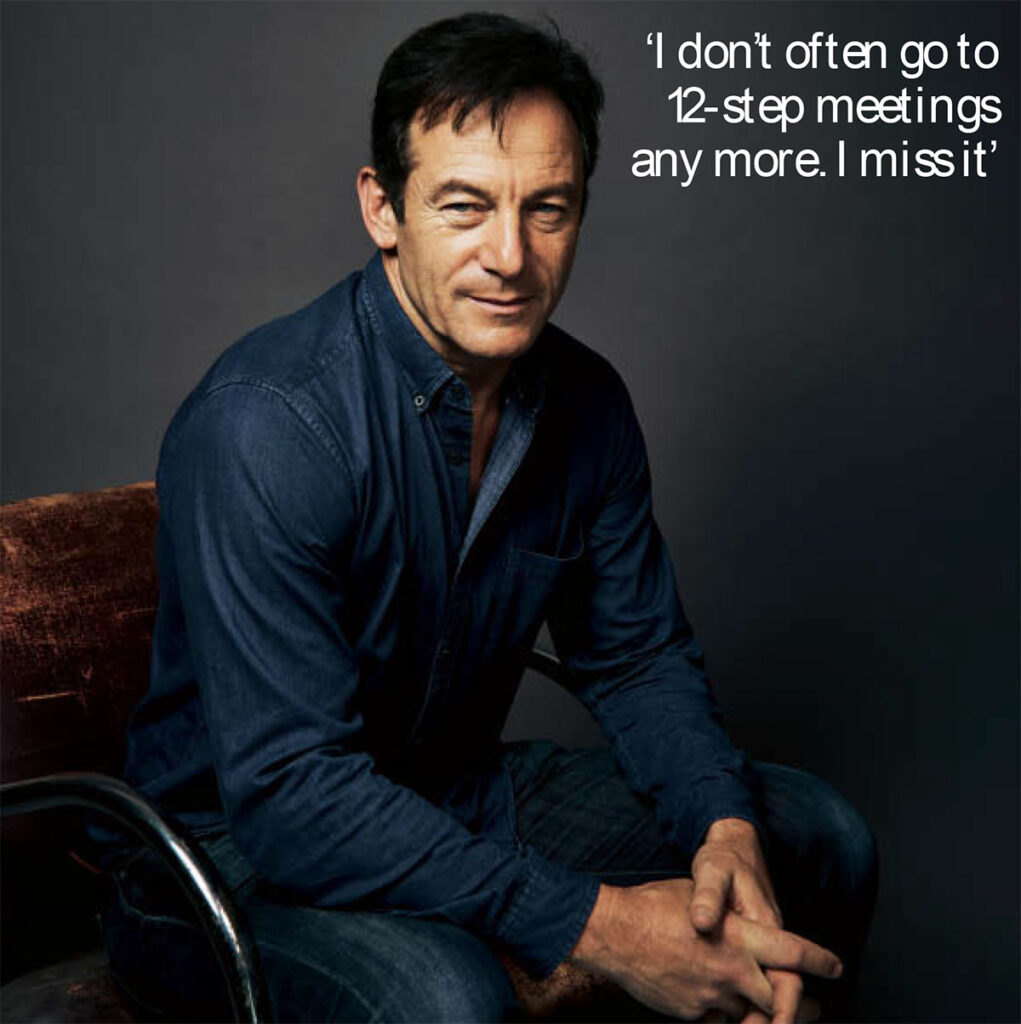
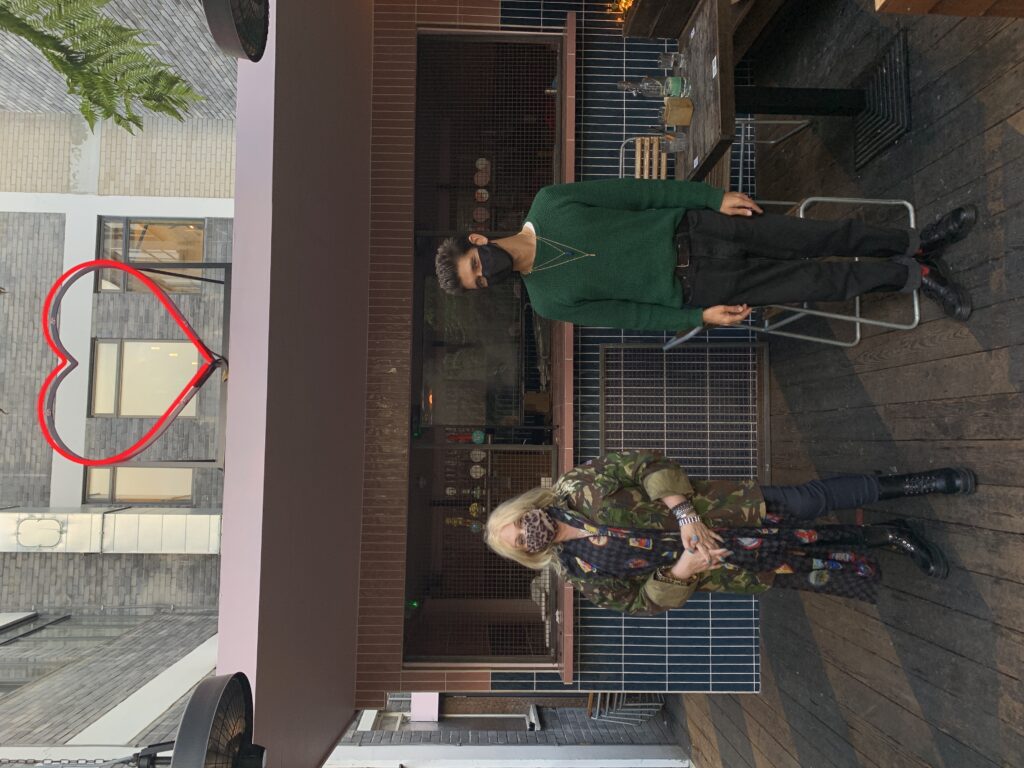
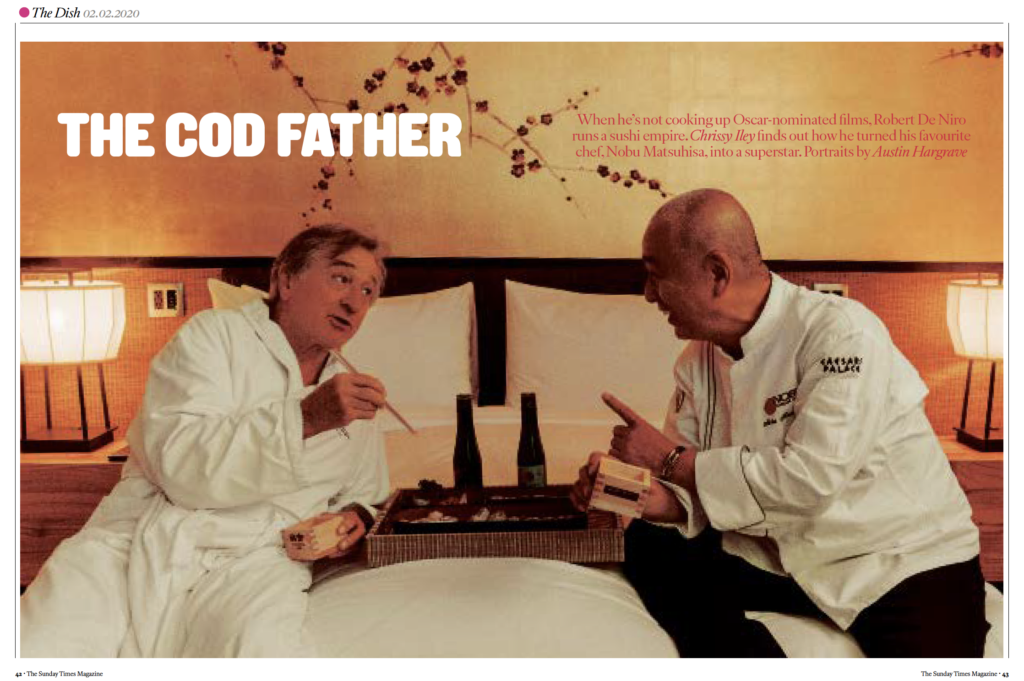
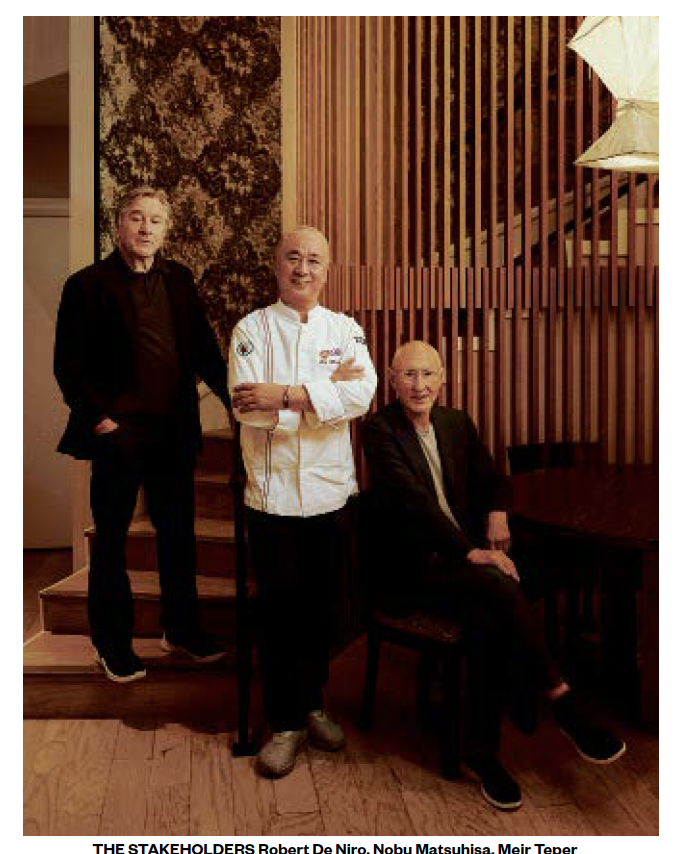
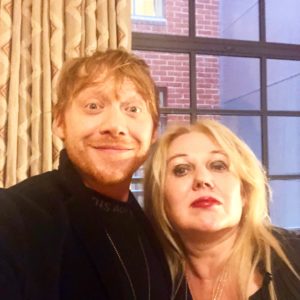
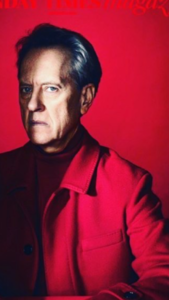
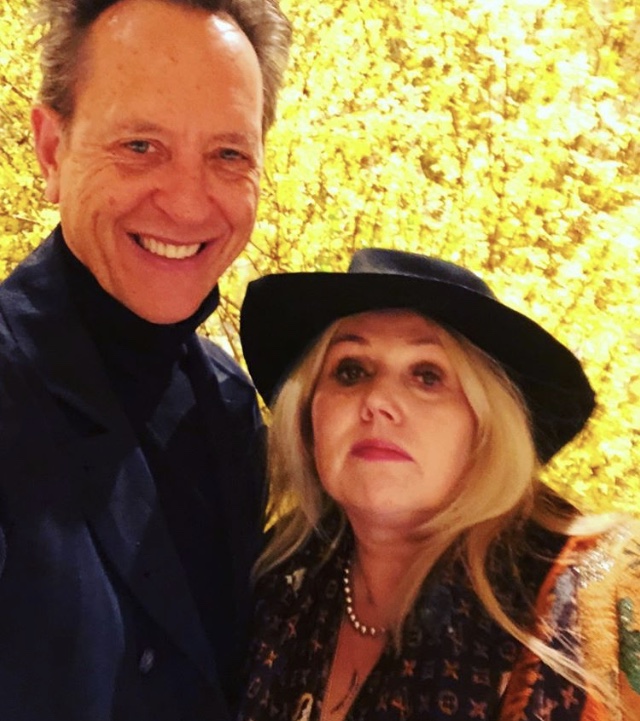
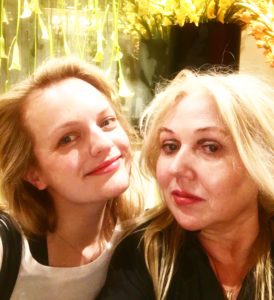
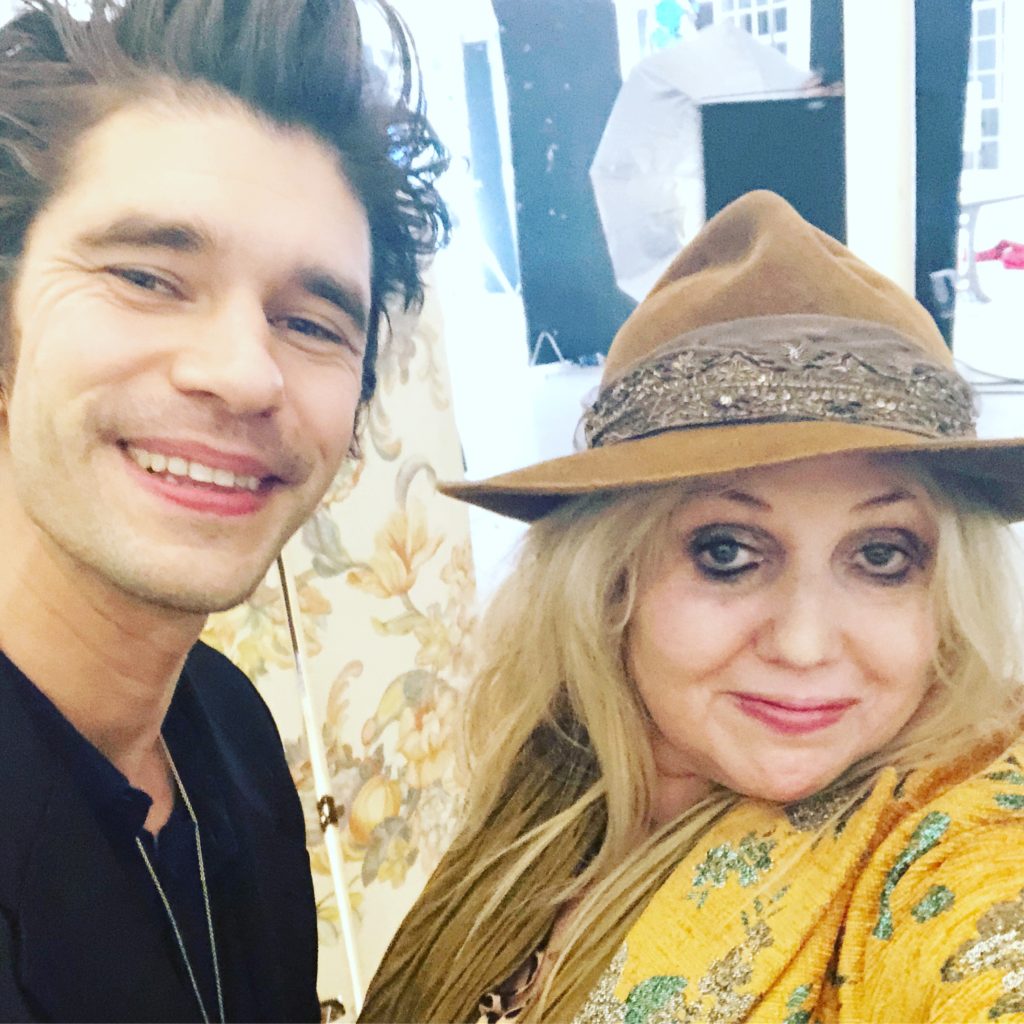

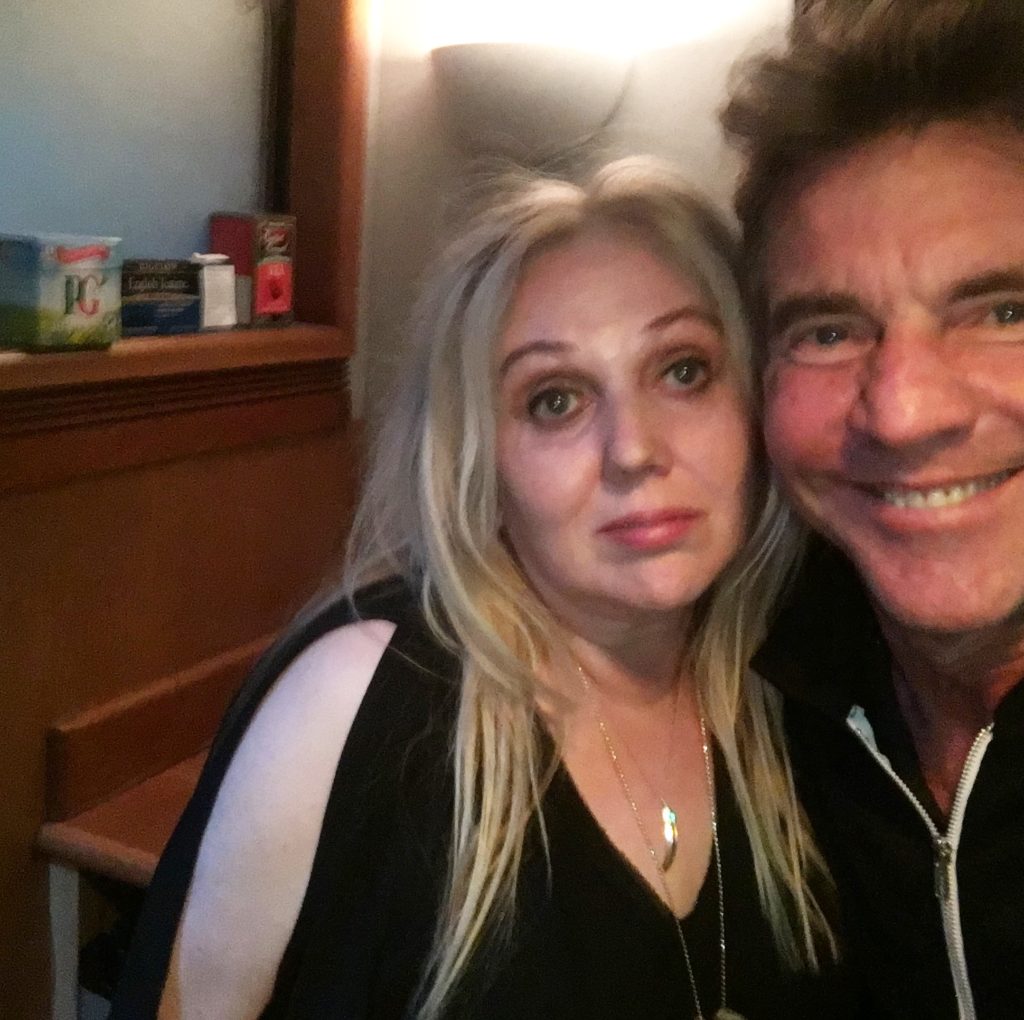
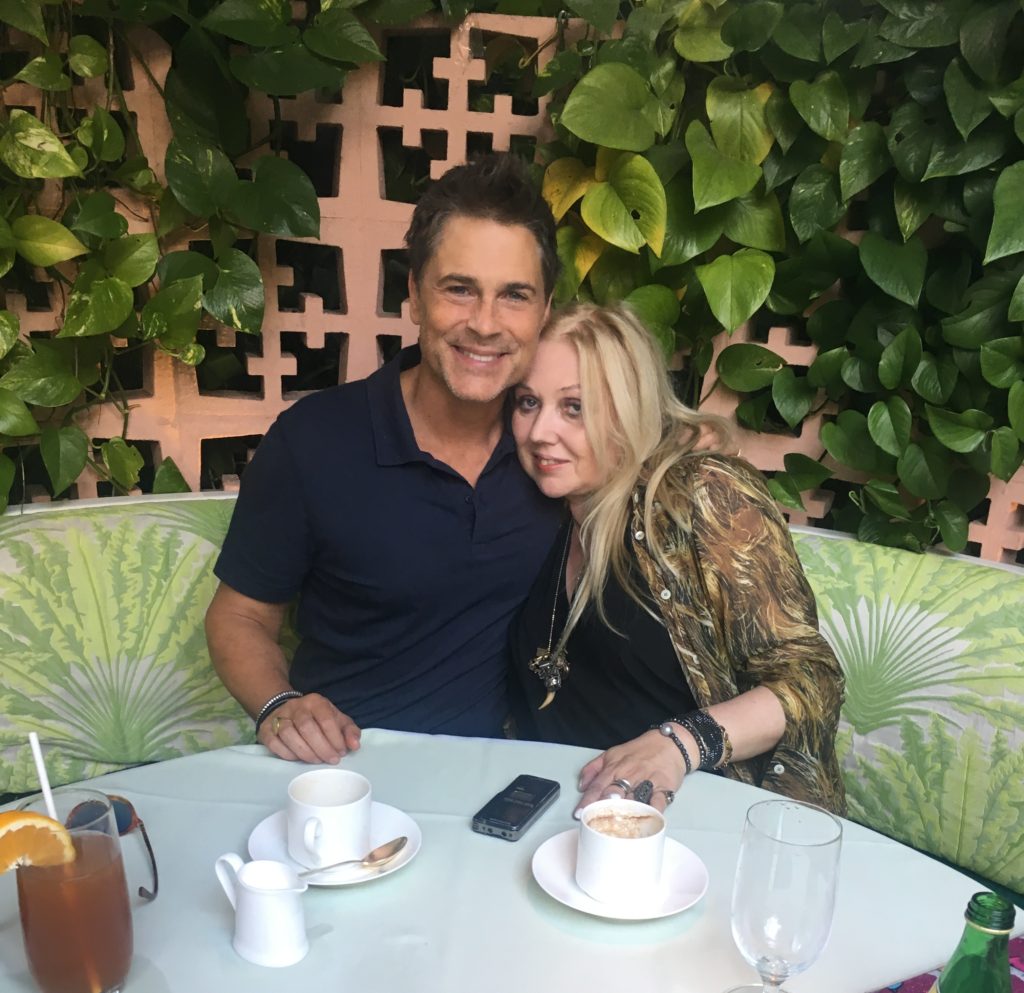
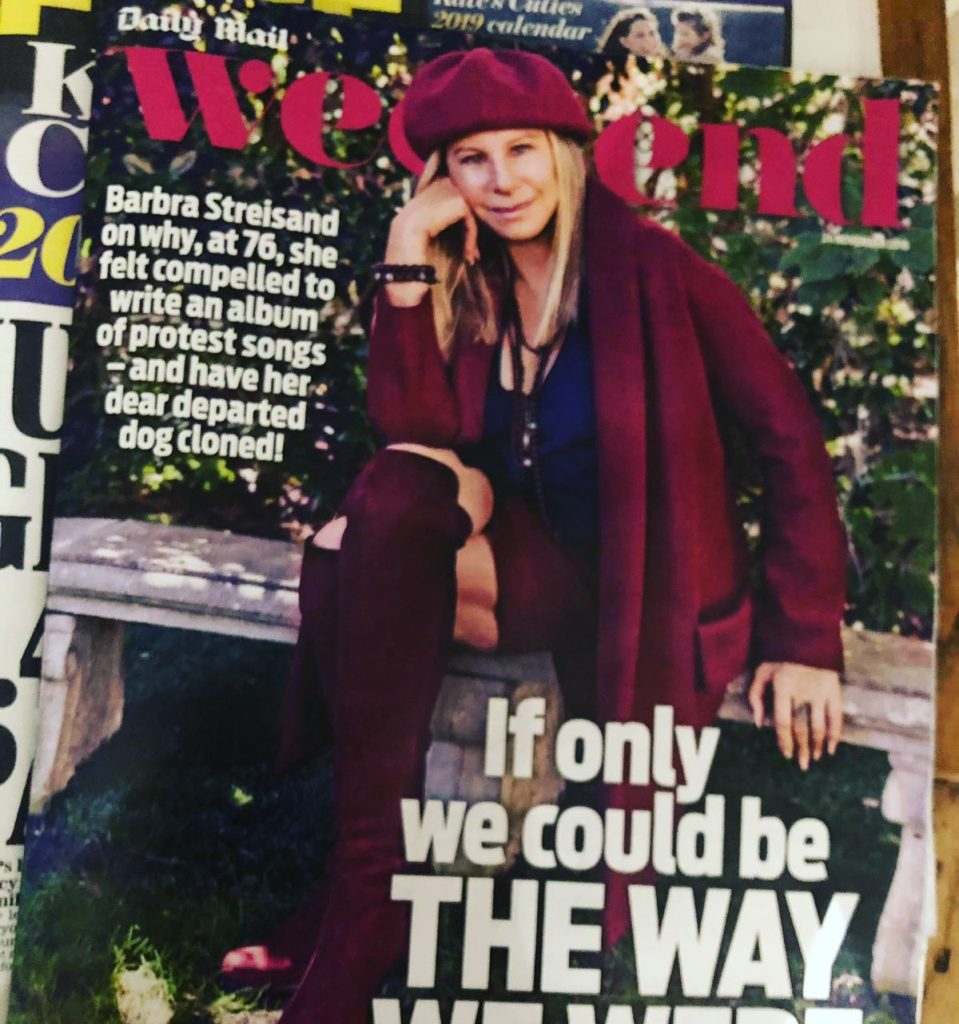
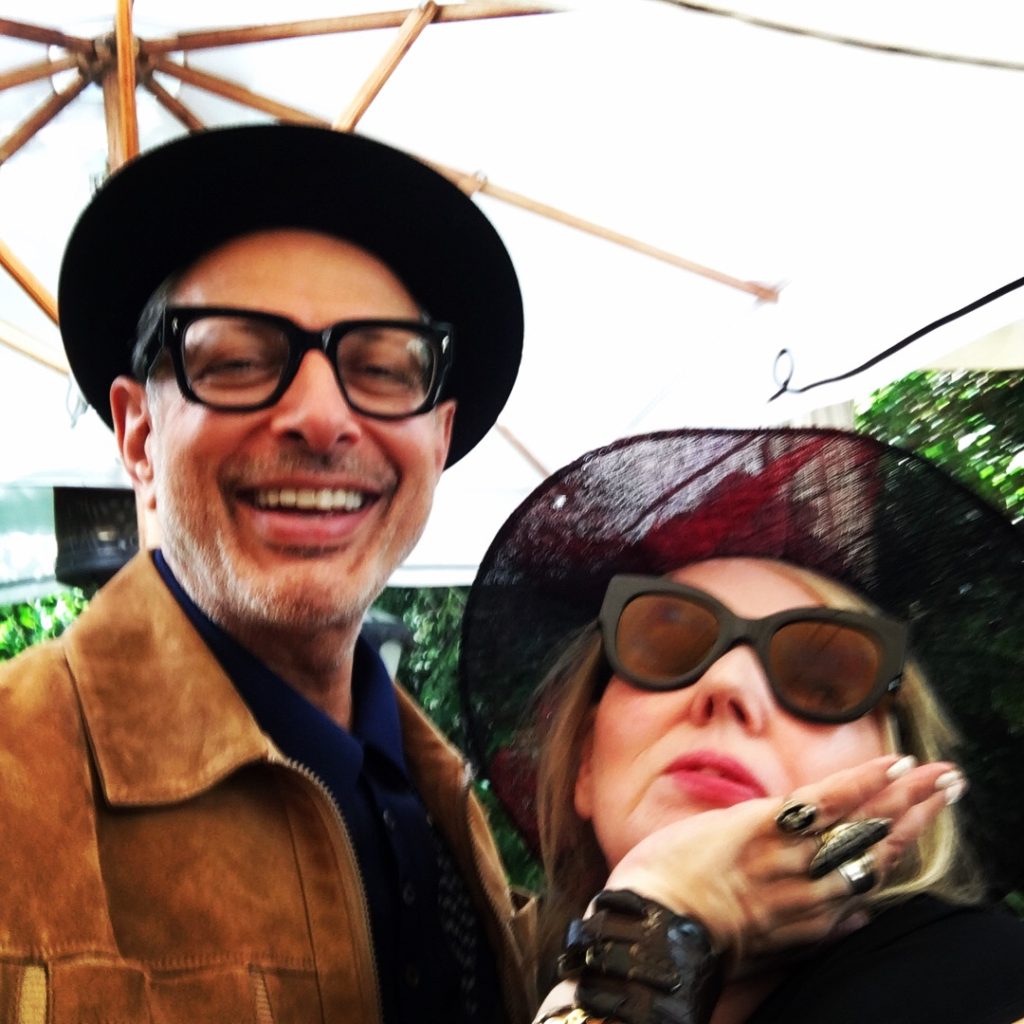
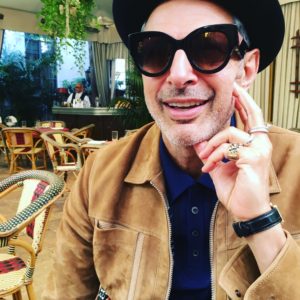
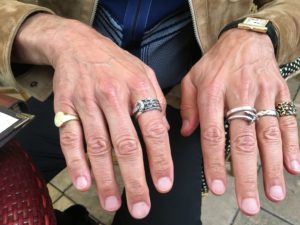
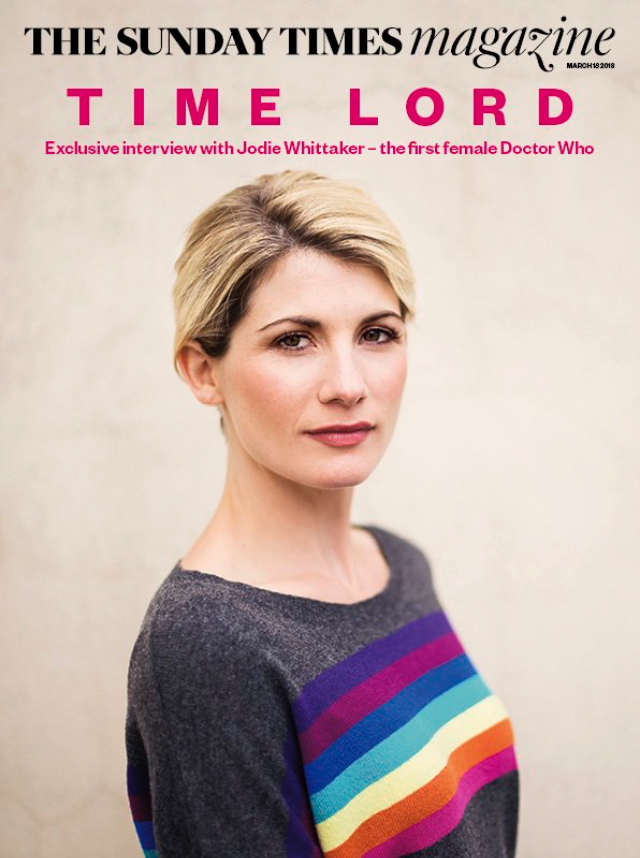
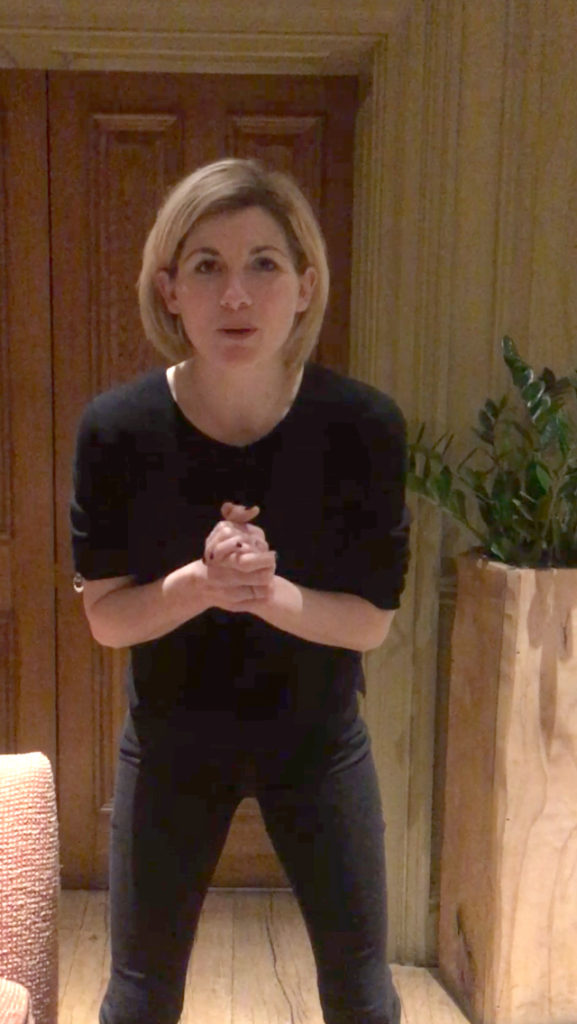 When I meet Jodie Whittaker she is dressed entirely in black. A black knit rib top, black skinny jeans, black ankle boots – flat, no nonsense. We’re sitting in the library of the Charlotte Street Hotel which is all cluttery cosy with tapestried couches. She couldn’t be more at odds with the surroundings. Her hair is in a variation of a blonde bob, her make-up understated. Down to earth Yorkshire woman. There is a firmness to her. You don’t mess with her. There’s a strange kind of deep seated confidence and strength and that’s something that she brings to the roles she plays. There’s very little of the vamp in her, but with her huge eyes and voluptuous lips there’s a trace of a woman who can do anything. Including take on the role of the first female Doctor Who and in the film Journeyman play the wife of a boxer who becomes brain damaged.
When I meet Jodie Whittaker she is dressed entirely in black. A black knit rib top, black skinny jeans, black ankle boots – flat, no nonsense. We’re sitting in the library of the Charlotte Street Hotel which is all cluttery cosy with tapestried couches. She couldn’t be more at odds with the surroundings. Her hair is in a variation of a blonde bob, her make-up understated. Down to earth Yorkshire woman. There is a firmness to her. You don’t mess with her. There’s a strange kind of deep seated confidence and strength and that’s something that she brings to the roles she plays. There’s very little of the vamp in her, but with her huge eyes and voluptuous lips there’s a trace of a woman who can do anything. Including take on the role of the first female Doctor Who and in the film Journeyman play the wife of a boxer who becomes brain damaged.